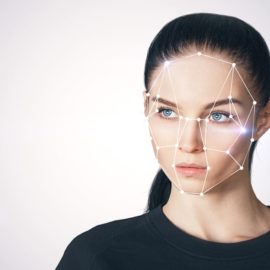Human skin is our biggest organ and a significant percentage of the population has problems with some type of skin pathology. In dermatology skin lesions are some of the most commonly diagnosed conditions. Stinging, burning and itching sensations characterize sensitive skin and, today, these conditions are so common that they’re becoming a global concern. The diagnosis, pathophysiology, and treatment are still a matter of discussion among professionals. Some of the most common skin diseases are rosacea, atopic dermatitis, and psoriasis.
Content
The most common types of skin lesions in dermatology
- Rosacea
Rosacea is a chronic, inflammatory skin condition that primarily affects the face. If it’s left untreated, rosacea worsens with time. Acne, eczema and skin allergy have some similar symptoms, and because of that, rosacea is often mistaken for these conditions. Rosacea affects 415 million people globally. It presents as erythema, flushing, prickly skin, spider veins and may burn with certain topical products, inflamed papules, and pustules.
- Atopic dermatitis (eczema)
In dermatology skin lesions caused by atopic dermatitis (eczema) are a common, chronic skin disorder that, nowadays, impacts the life of a very large number of individuals. It is the most common inflammatory skin condition and globally affects up to 3% of adults who suffer from chronic or relapsing itching. In France, for example, the condition is severe in almost 10% of patients. It is the second most common skin disease after acne. Eczema affects 15% of babies and 20% of children under the age of 7. Because of that, it creates a high social and economic cost. The pathogenesis of the disorder is not completely understood and 70% of patients are still looking for new solutions. For example, 45% of parents of children aged 0-4 who buy BPC, agree that it’s hard to know what is safe for their children. Altogether, 20% of the world’s child population is affected by eczema.
- Psoriasis
Psoriasis is a chronic inflammatory skin disease that affects 125 million people globally. It comes with a strong genetic predisposition and autoimmune pathogenic traits. Scaling, bleeding, itching, swelling, burning, erythema, and fatigue are some of the symptoms of this condition that is frequently debilitating and painful. The worldwide prevalence is about 2%, but some of the regions are more affected than others, for example, Asian and some African populations have lower prevalence than Scandinavian populations. Currently, there is no cure for psoriasis and, because of that, it can affect mental well-being.
Sensitive skin syndrome
Although previously considered not so frequent, sensitive skin syndrome has shown high prevalence in current studies. For a large number of European consumers, sensitive skin remains a great concern and brands today can offer a 360 approach through guidance and key activities. The studies show that 43% of women in France say that they have sensitive skin. Almost the same percentage (48%) of Italian women say that, and a surprisingly large number of men in the UK (32%) have the same problem.
Healthy skin care
New studies have shown that cosmetics, climate changes, and skin barrier impairment are the main factors that contribute to skin lesions and sensitivity. Natural, organic and paraben-free cosmetic products are a must-have, and clean beauty is an established expectation. Calming ingredients such as hemp, matcha, cica, blue tansy, moringa, turmeric, and buriti are all increasingly used in cosmetic products, especially in those for sensitive and allergy-prone skin. For such conditions, it is extremely important that these skin care products contain no harsh chemicals.
Positive beauty can complement dermatology
Blake Lively, the famous Hollywood actress, said that “The most beautiful thing you can wear is confidence”. And nothing can be truer than that. There’s an undeniable relationship between skin pathologies and emotional health, so the importance of taking care of such pathologies is very important.
In the US, 40% of adults have a great deal of confidence in the scientific community, while in China 30% of adults with skin conditions don’t take any measures and let their skin condition heal on its own (Pew Research Center; kuRunData/Mintel; base: US 791 respondents; China 2637 internet users aged 20-49 who experienced skin conditions). In the UK, 70% of people have visible skin conditions or scars that directly affect their confidence (British Skin Foundation), while in France 76% of women agree that feeling comfortable is better than looking perfect (Lightspeed/Mintel; base: 1034 female internet users aged 16+).
In dermatology skin lesions are extremely common diagnoses. Being confident about one’s skin is more important than having perfect skin, so we are seeing more and more beauty and skin care brands emerge that connect emotionally with the consumer, promoting confidence through positive messaging and focusing on emotional benefits.
No comments yet
There are no comments on this post yet.





Leave a comment